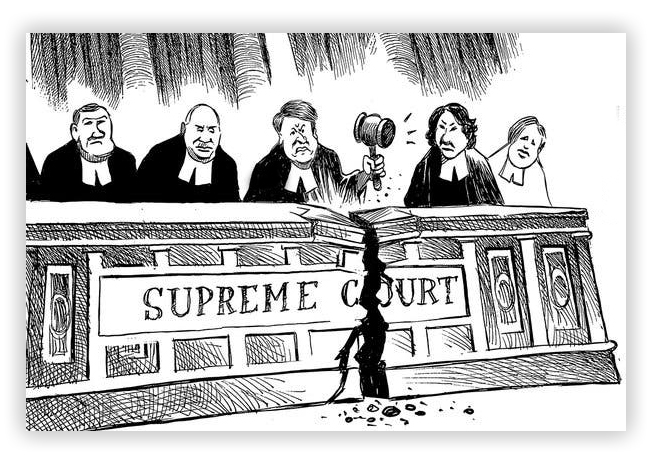We post news and comment on federal criminal justice issues, focused primarily on trial and post-conviction matters, legislative initiatives, and sentencing issues.

SUPREME COURT BADLY SPLIT ON SUPERVISED RELEASE REVOCATION
The Supreme Court today fractured badly on whether a supervised release revocation requires a jury finding beyond a reasonable doubt.
The issue was an extreme one: Under 18 USC § 3583(k), a supervised release violation involving certain statutes prohibiting child sex abuse or pornography requires a mandatory five-year additional term. The Tenth Circuit had declared the provision unconstitutional, raising the question whether ANY supervised release violation that included a prison term could be found unless a jury did so beyond a reasonable doubt.
 Yesterday, four justices found that supervised release violations that led to prison terms had to be found by a jury beyond a reasonable doubt. Justice Neil Gorsuch wrote, “The lesson for this case is clear: Based solely on the facts reflected in the jury’s verdict, Mr. Haymond faced a lawful prison term of between zero and 10 years. But just like the facts the judge found at the defendant’s sentencing hearing in Alleyne, the facts the judge found here increased “the legally prescribed range of allowable sentences” in violation of the Fifth and Sixth Amendments.”
Yesterday, four justices found that supervised release violations that led to prison terms had to be found by a jury beyond a reasonable doubt. Justice Neil Gorsuch wrote, “The lesson for this case is clear: Based solely on the facts reflected in the jury’s verdict, Mr. Haymond faced a lawful prison term of between zero and 10 years. But just like the facts the judge found at the defendant’s sentencing hearing in Alleyne, the facts the judge found here increased “the legally prescribed range of allowable sentences” in violation of the Fifth and Sixth Amendments.”
However, four Justices are not a majority. Justice Breyer, in a concurring opinion, agreed that the particular provision at issue, 18 USC § 3583(k), is unconstitutional. But because the role of the judge in a typical supervised-release proceeding is consistent with traditional parole and because Congress clearly did not intend the supervised release system to differ from parole in this respect, he did not agree with the other four that the Apprendi line of cases applied in the supervised-release context.
Four other justices dissented sharply.
Under precedent, § 3583(k) is declared unconstitutional, but Justice Breyer’s narrower decision controls. Thus, for now, traditional supervised release violations remain free of a reasonable-doubt Apprendi v. New Jersey requirement.
A final opinion day for the Supreme Court’s year is set for today. We expect the decision in Carpenter v. Murphy at that time.
United States v. Haymond, Case No. 17–1672 (June 26, 2019)
– Thomas L. Root

